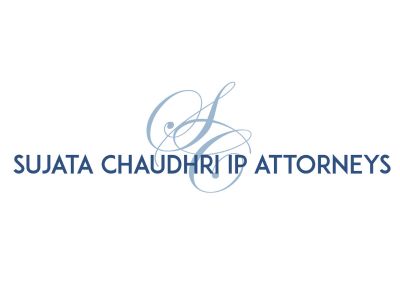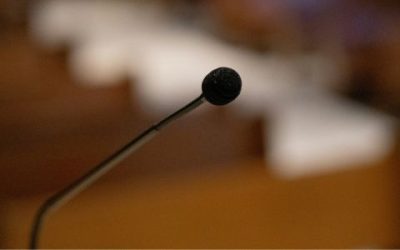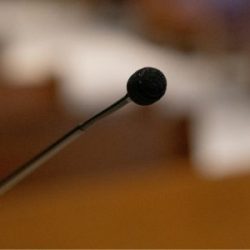In the ever-evolving test of obviousness, what has been consistently critical is the technical opinion of the expert or “person skilled in the art” (PSITA). Identifying who this expert is for a particular patent/invention is, therefore, critical.
A creative leap was taken before the US Federal Court recently in proposing to add a timing requirement in the assessment of an expert/person skilled in Osseo Imaging, LLC v. Planmeca US Inc. (September 2024). Many questions arose before the Federal Circuit, such as:
- Can the court disqualify an expert witness because he was not a person skilled in the art back when the invention was made and became skilled a decade after the application was filed?
- Is there an additional timing requirement for an expert?
After analysis of the qualifications of the “person having ordinary skill in the art,” the Federal Circuit clarified that there is no timing requirement for when the person acquired their skill in order to testify as an expert and that they do not need to be anything more than a skilled artisan.
Analyzing this from an Indian perspective, it is critical to understand who is a “person skilled” in an Indian context. While the phrase “person skilled in the art” has been provided for in the statute itself, it has not been statutorily defined under Indian laws despite its significance. It is through various judicial interpretations that the many characteristics of this hypothetical legal person have been identified.
In a landmark decision in Biswanath Prasad Radhey Shyam v. Hindustan Metal Industries, the “person skilled in the art” was defined as a “competent craftsman (or engineer as distinguished from a mere artisan) endowed with the common general knowledge at the priority date, who was faced with the problem solved by the patentee but without knowledge of the patented invention.” This definition showed that the PSITA must be a professional, not just a worker.
Later, the Intellectual Property Appellate Tribunal, in Ideal Cure Private Lts. V M/s Colorcon Ltd [2008] emphasized that such a notional skilled person has a “non-inventive mind.” Subsequently, the Delhi High Court in Hoffmann-La Roche Ltd & Another v. Cipla Ltd. [2008] observed that the test of obviousness was assessment through the lens of a “normal but unimaginative person skilled in the art to discern the (inventive) step on the basis of the general common knowledge of the art at the priority date.” The “unimaginative” or “non-inventive” quality may be assumed to refer to a level that is less than that of the inventor, meaning that the notional person is skilled but not inventive.
However, this approach transformed in 2012 when the IPAB in Sankalp Rehabilitation Trust v. F. Hoffmann-LA Roche AG and Another (2012) observed that “the “person skilled” is not ignorant of basics, nor is he ignorant of the activities in the particular field. While he is an average or ordinary man, he is not a dullard and has a certain modicum of creativity.”
Thereafter, it was emphasized that the use of the word “ordinary” should not be used for a “person skilled” in the Indian context. The Indian skilled person is one who has more than average knowledge of the state of the art and also has common sense.
Eventually, refusing to accept the definitions provided in foreign judgments, the Indian courts held that the “person skilled” would have the knowledge and the skill in the said field of art and would not be unknown to a particular field of art.
PSITA’s level of skill
In Microsoft Technology Licensing LLC v. Asst. Controller of Patents and Designs (2024), the Madras High Court addressed the PSITA’s level of skill: Is it average, good, very good, excellent, or extraordinary?
It was observed that the statute does not place any of the above qualifiers before the adjective “skilled” for obviousness analysis. However, where sufficiency and enablement criteria have to be adjudged in a revocation action, it is done from the perspective of another notional person who possesses average skill in and average knowledge of the art to which the invention relates.
Considering this, it is safe to conclude that the level of skill of the PSITA is good/greater than average because most disciplines/arts require a range of skills or skill set, this person should possess the skill set to do the job well.
Timing requirement
As interpreted by the courts, a PSITA should have knowledge and greater than average skill of the relevant field and state of the art as on the priority date of the invention, but it does not suggest that they should have acquired this skill on or before the priority date. Thus, if the PSITA is skilled per the identified qualifications and apprises themself of the prior/state of the art as the date of the subject-invention, that should suffice.
When selecting the expert to depose on obviousness aspects, all that should be required is that the qualifications of the notional PSITA are satisfied. An expert need not have acquired that skill level before the time of the invention to be able to testify from the vantage point of a PSITA. Rather, an expert can acquire the necessary skill level later and develop an understanding of the technical advancement at that date and must have the skill and knowledge that notional PSITA knew or should have known at the time of the invention.
The timing requirement pushes the hypothetical PSITA construct too far and is unlikely to be endorsed by Indian courts either.
Disclaimer: The views and opinions in this article are personal and should not be construed as legal opinion.

Written by Sneha Sharma
Principal Associate – Patents & Designs, Sujata Chaudhri IP Attorneys
You may also like…
China’s push to lead AI-driven communication: patents, innovation, and global competition
On a technical level, one of the most significant trends in the global information and communication industry today is...
Director Review reverses PTAB decision based on contradictory expert testimony in Interactive Communications v. Blackhawk Network Inc.
The USPTO Director's recent reversal of a Patent Trial and Appeal Board (PTAB) Final Written Decision in Interactive...
Survival of the fittest: Strava sues Garmin for patent infringement
Fitness app company Strava has recently made waves in the running and cycling communities after suing Garmin for...
Contact us to write for out Newsletter














